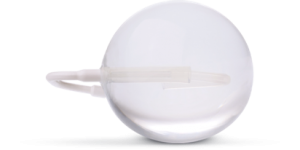Lifestyle choices, medical conditions, and dietary habits can cause muscle wasting and weight loss. Muscle wasting can be a manifestation of a disease or occur due to various factors such as age. It’s very possible to lose weight unexpectedly. At Spatz3 we are exploring the cause of muscle wasting and weight loss is instrumental in understanding its circumstances.

Muscle Wasting Syndrome
Muscle wasting occurs when you’re not physically active. It’s also known as muscle atrophy. A disease or injury can make moving impossible and lead to muscle wasting. It’s often an irreversible syndrome in the aging process and for patients with advanced cancer. The syndrome occurs when there is a decrease in muscle mass when proteins degrade faster than new ones formed.
When you experience muscle loss due to age, it’s referred to as sarcopenia. The hormonal changes during this time can trigger muscle wasting. As time progresses, your total muscle mass diminishes. When your mass decreases, you become weak and unstable, which makes you more susceptible to falls and injuries.
You can know you have muscle wasting syndrome:
- If an arm or leg is noticeably smaller than the other.
- Weakness in one limb.
- Physical inactivity for a long time.
- Numbness or tingling in your arms and legs.
- Difficulties walking.
- Difficulty speaking or swallowing.
- Gradual memory loss.
- Facial weakness.
- Reduced muscle strength.
- Decreased muscle size.
Causes of Muscle Wasting
When you’re physically inactive, your unused muscles can waste away. Also, it can occur if you can’t move certain body parts due to a medical condition. Other causes include muscle pain and weakness due to excessive drinking over time, aging, burns, torn rotator cuff, broken bones, spinal cord injuries, malnutrition, stroke, and long-term corticosteroid therapy.
Malabsorption is a potential cause of muscle wasting. When the nutrients aren’t properly absorbed, it may cause weakness and trigger muscle atrophy.
Disuse atrophy
Disuse atrophy is caused by not using your muscles enough. The body will break the muscles down, and they begin to decrease in size and strength. You could be susceptible to such atrophy if:
- Work while seated all-day.
- Don’t exercise regularly.
- You’re malnourished.
- Lead a sedentary lifestyle.
- Can’t move your limbs because of a stroke.
- Have age-related atrophy.
Diseases that Cause Weight Loss and Muscle Wasting
The diseases that cause weight loss and muscle wasting include:
Amyotrophic Lateral Sclerosis (ALS)
ALS is a disease that progressively affects the nerve cells throughout the body. Nerve cells send messages to the muscles to move. However, people with ALS experience muscle wasting as the nerve cells that control voluntary movement die and don’t send signals for movement. The lack of use of the muscles leads to wasting.
Muscular Dystrophy
It’s a genetic condition that leads to progressive muscle wasting that varies in the age of onset and specific symptoms.
Multiple Sclerosis
This disease affects the myelin that surrounds the nerve fibers, causing damage to the nerves and affecting the muscles and movement, leading to atrophy. The more the damage, the more the muscle loss.
Cancer Cachexia
This disease causes involuntary weight loss and wastes your muscles.

Dealing with Weight Loss and Muscle Loss
Weight loss and muscle loss correlate when understanding more about muscle wasting and finding a suitable treatment plan. When you have muscle atrophy due to being physically inactive, you can address the condition with a diet and exercise. Weight and muscle loss are primarily dependent on what you eat. Consuming enough protein in your diet can build and maintain muscle.
You can also do resistance training workouts for muscle groups thrice a week. You can increase your training intensity and exercise when a muscle adapts to a workout. If you experience weight loss due to muscle wasting, seek medical advice from a doctor.
Weight loss and muscle losscan be managed through:
- Incorporating proteins and calories to support muscle health.
- Physical therapy/ chemotherapy/ hormone therapy.
- Finding alternatives to medication that wastes muscles.
- Being more active and meditating to reduce stress.
- Changing your diet.
Bearing Upon Muscle Wasting
Muscle wasting and weight loss occur gradually for various reasons, such as medical conditions. Muscle wasting can broadly impact someone’s life and your gastric balloon. Treating the condition is essential to prevent muscle loss. Understanding more about muscle wasting and weight loss can help you regain muscle mass.


